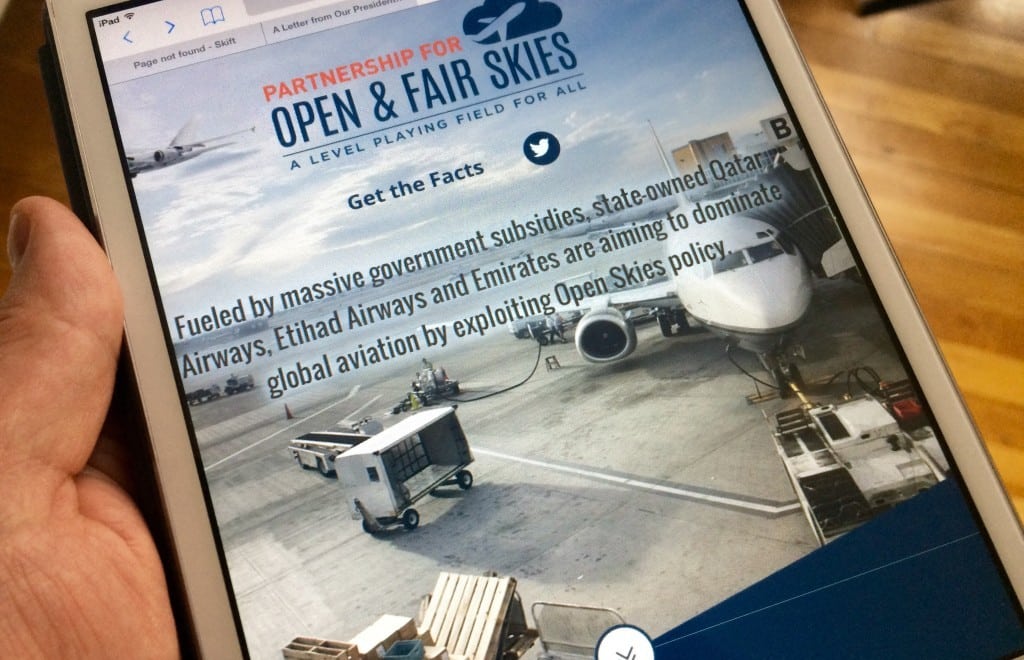US–UAE Business Council Tells U.S. Airlines to Compete More and Complain Less

Skift Take
There's more at stake here than could possibly fit a short Skift take. We'll keep watching and updating readers as this critical battle Open Skies battle progresses.
Pointing out that existing Open Skies agreements are critical to protect a $19 billion annual United States trade surplus with the United Arab Emirates, the Washington, D.C.-based trade organization US-UAE Business Council tells US airlines to “stop complaining and start competing.”
As the Open Skies debate heats up with the recent publication of the long-awaited detailed report in support of American Airlines, Delta, and United’s claims that the growth of the Gulf carriers is attributable to over $42 billion in subsidies, the three carriers have seen little support thus far from U.S. tourism and trade organizations, nor even from some industry peers, but some have clearly marked their side on this debate.
The Air Line Pilots Association (ALPA) has issued strong statements prompting the U.S. government to take action and defend national carriers, updated issued under the hash-tag #FairSkies on social media.
